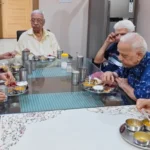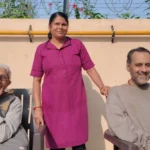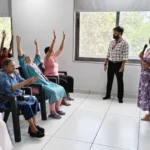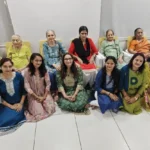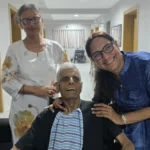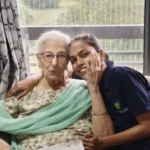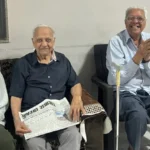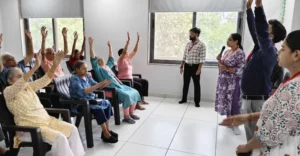If you have an elderly person at your home or you are a caretaker offering senior personal care services, you need to understand that elders are really fragile when it comes to health. The prompt medical response is the key to survival in case any sign or symptom shows up. A heart attack is one of the most common ailments that senior citizens experience. As heart attack is a sudden event, one cannot do much to stay prepared. But if you are vigilant to notice the common signs and symptoms, you can save a senior’s life. Let us look at some of the most common signs and symptoms of heart attack in seniors:
Chest Pain
When blood flow to the heart is blocked due to any reason, a person experiences a heart attack. Naturally, heart exerts extra pressure and force to pump blood and a person feels sudden discomfort and pain in the chest. This pain can last for more than a minute. If you are into elderly care, you should not overlook this sign and immediately rush the senior to a hospital or medical facility.
Some seniors are not very keen on describing their pain but you can ask them about the type of pain and the origin point. If the pain is emerging from the left side of the chest and continues to grow in waves, it is time to act swiftly.
Indigestion, heartburn & flatulence
A person may complain of indigestion and heartburn if he/she is experiencing a trouble with the heart. As the heart is collapsing, a person may feel heavy pressure on the chest which makes him/her believe it is the case of indigestion, heartburn, and flatulence. Sudden complains such as these should make you alert and you should definitely contact a doctor or medical professional if such a complaint persists for a longer duration of time.
Breathing trouble
Having discomfort during breathing is an indicator of a heart attack. Senior citizens are more prone to fatal health conditions when such a situation occurs. Generally, discomfort in breathing is a precursor to chest pain and should be taken seriously by a senior health care professional. Constriction in the whole upper body or the torso can also be a sign of an impending heart attack. If such is the case, rushing a senior to a hospital for medical care is essential.
Sudden sweating and dizziness
One of the most identifiable signs of a heart attack is sudden sweating. When there is a blockage in heart, the whole body starts feeling tired due to lack of blood. This trigger the sweat glands and a person experiences sudden sweating in various parts of the body. Along with the sweating, there are signs of dizziness, nausea due to lack of breath and energy in the body.
Piercing pain in jaw or left arm
If a person in the old age experiences sharp and sudden pain in the jaw or left arm, this should be a red flag for caretakers. Veins from the heart are directly connected to various parts of the body and pressure on the heart can lead to pains in various areas such as the jaw or left arm. In case such pains continue over a period of time and are piercing, one should get a senior for an ECG test. The sooner one identifies such signs, the better it is for the well-being of a senior.
Vomiting
Doctors have also seen vomiting as a symptom for an impending heart attack. If an elderly person despite having a healthy stomach and bowel routine, vomits out of the blue, that should be taken very seriously and reported to medical professionals immediately.
Elderly care is not a side duty but a full time job. As they require constant care and sudden treatment in case of an emergency, having a reliable caretaker who can handle senior health care as well as personal care is very essential to eliminate the chances of fatal health issues. If you are not able to take care of your loved elders, you can always think of assisted living facilities. These centers are equipped with all the facilities along with trained medical staff and caretakers who know how to identify early signs and respond in case of a health emergency. Papaya Care is a renowned name in senior health care and can help you shed off your worries by taking proper care of your loved ones during the old age.


